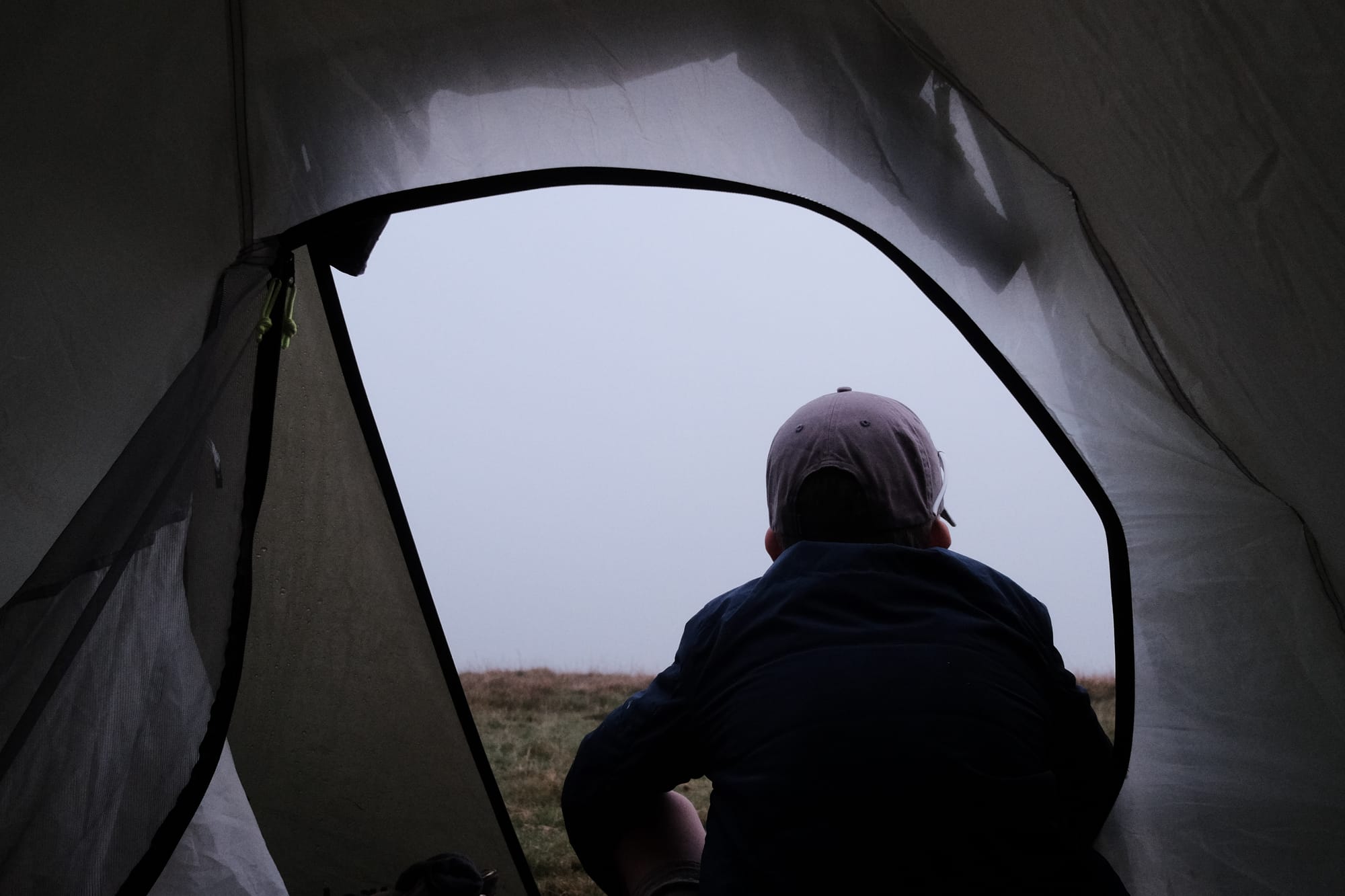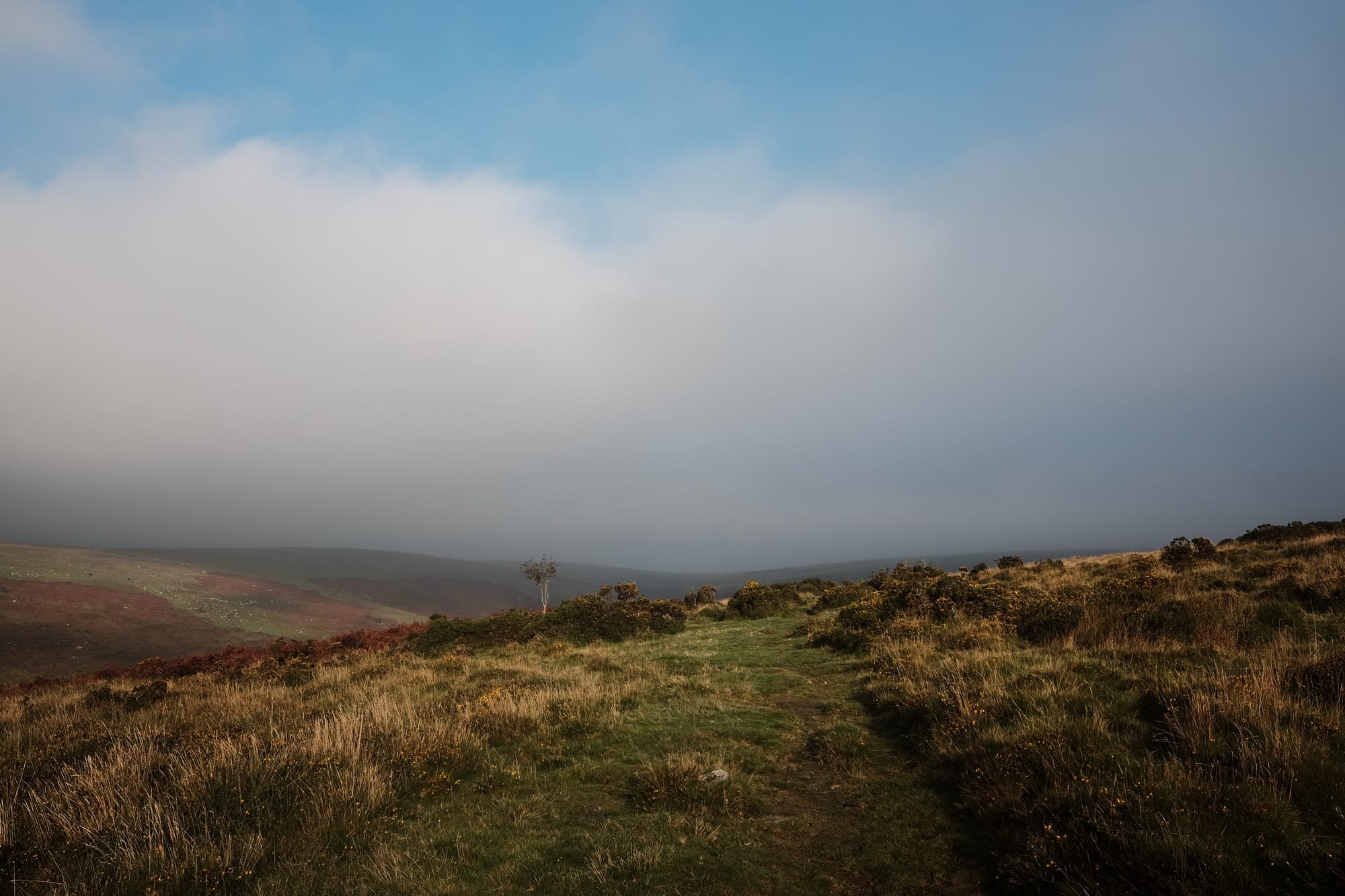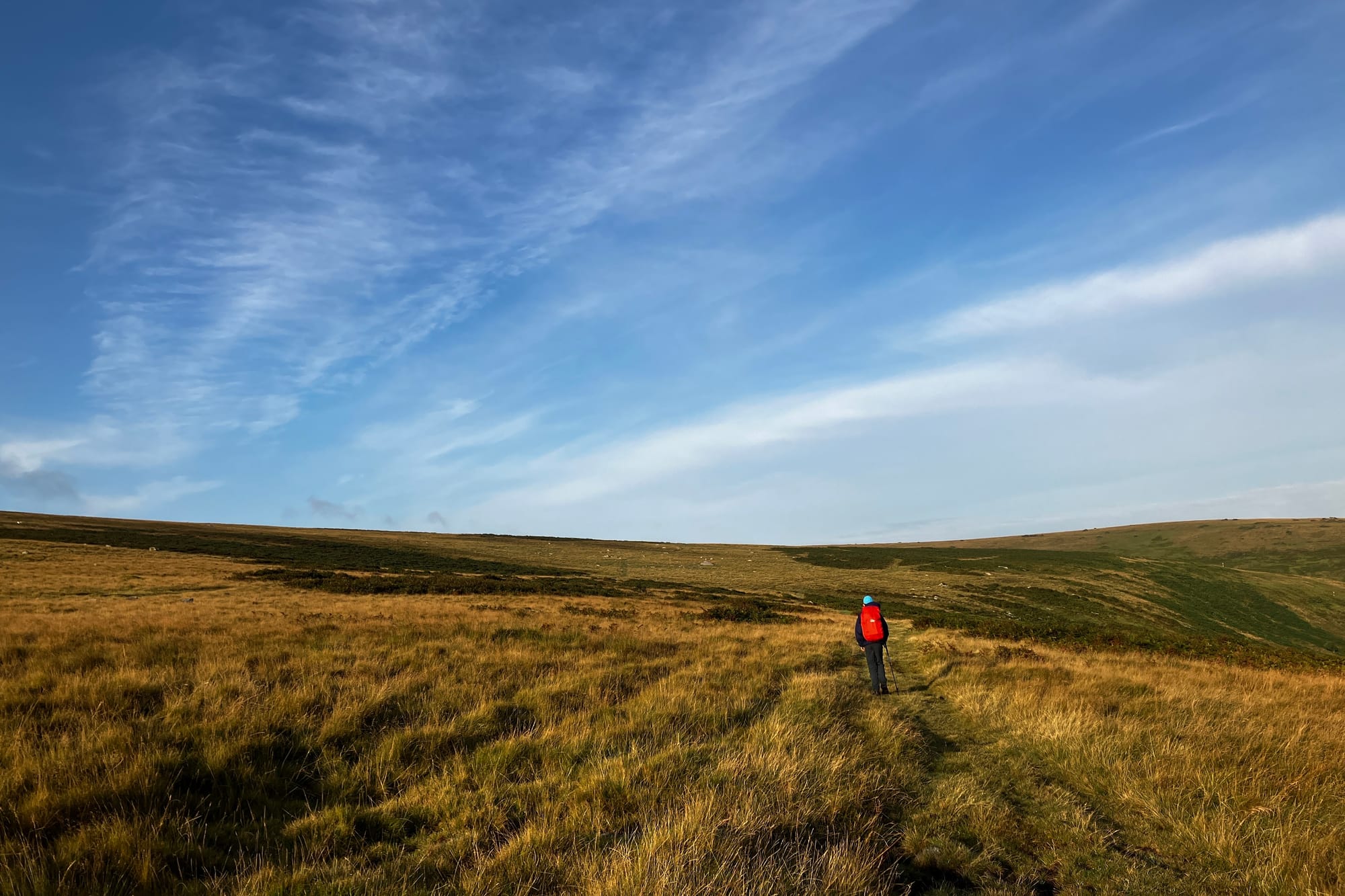Camping wild and free on Dartmoor
Exercising our fragile, threatened right to sleep under the stars, we hike high on to the moor before pitching our tent in the fading light.

G and I camped wild on Dartmoor for the first time when he was just five years old. Since then we’ve returned twice more: last year and this. It’s becoming a ritual, one which draws us deeper into the romance of walking and sleeping on the wild, free moor.
Dulcie in The Offing by Benjamin Myers
On our very first visit, we caught the train to Ivybridge then hiked up. We didn’t venture far – G was young and I was laden with gear – but it was a memorable trip. The evening brought us distant views of sparkling sea as we pitched our tent, and the following morning brought us a thunderstorm as we scurried back down to the station. The experience sparked G’s love for Dartmoor and we vowed to return.
Last year, we did return. But things had changed: since our previous trip, wealthy landowner and hedge fund manager Alexander Darwall had challenged the by-laws of the Dartmoor Commons Act, and the right to wild camp on the moor. He won his case, then lost on appeal. Amidst the upheaval, the Dartmoor National Park Authority had contracted the pink area on its map showing where wild camping was permitted. So instead of heading again to Ivybridge, we drove to Shipley Bridge and walked up the old tramway.

We hiked until we were high on the moor, then pitched our tent in the golden evening light. The silhouette of a walker reached the summit of a distant tor, then turned back the way it had come. There was nobody else in sight. After eating dinner, we played with the frisbee G had packed. It felt good to keep moving for a while as the air took on a twilight chill. Then, in the last of the fading light, we packed up the frisbee and cocooned ourselves in sleeping bags against the cold night to come.
The next morning, we emerged to a world redecorated. The expanse of moor around us and farmland beyond had been painted white; mist had moved in and covered everything aside from a herd of Highland cattle. The cows watched us intently as we ate breakfast wrapped in our coats. Then the herd tracked our progress, staring fixedly from beneath their shaggy fringes, as we packed up and walked back along the tramway, down to the car, and home.
In the months that followed, Alexander Darwall resolved to take his effort to strip people of their legal right to wild camp on Dartmoor all the way to the Supreme Court. If he were to win, wild camping on the moor would require the permission of landowners like him. With the hearing scheduled for 8th October this year, G and I planned to make use of our rights for what could be the final time.
Now aged 11, G was keen to expand our horizons; he wanted to feel as if camping was part of a bigger expedition. So I switched our focus to Okehampton, the gateway to the northern part of the moor. We’d catch the train there and then do a circular walk, camping at roughly the halfway point. Okehampton would provide a place to resupply after our long train journey and would be within reach if we needed to head back down in a hurry.

And so, just before the end of the school summer holidays, we found ourselves walking past the army camp above Okehampton. There was no live firing scheduled and all was quiet except for sightseers making use of the road through the range. We soon turned away from them and off the tarmac. Skirting the higher, wilder ground to the south – that would have to wait for future years – we headed west towards Meldon Reservoir.
I carried the weight of responsibility for our trip – as well as a disproportionate share of the equipment. But G was becoming an increasingly useful part of the expedition. This was particularly the case when it came to choosing a place to camp. He’s a connoisseur of wild camping spots and had soon picked out a sheltered hollow where we’d catch the last of the evening sun and could fall asleep to the sound of a stream tumbling down the moor. I had to hand it to him, it was pretty much perfect.
In the morning, we’d pack up early and descend towards Meldon before following the Granite Way back into Okehampton, making the most of the easy walking along the disused railway line. But the camping was the special part of this trip, it has been on all our Dartmoor adventures. As long grass shadowed the tent’s flysheet and tumbling water soundtracked our bedtime, I tried not to think that this could be the last time we’d camp freely on the moor.
Next week the Supreme Court will decide whether one man gets to extinguish a right enjoyed by thousands of people. As Dartmoor is the only place in England where there’s a legal right to wild camp, a judgement in Darwall’s favour threatens to affect an entire nation.
More broadly, the case highlights the inadequacy of access arrangements and the need for urgent reform. Let’s hope Darwall loses and that the Labour party – having backtracked on previous promises to reform access rights – appreciates that we all need freedom to roam, sleep and immerse ourselves in nature. Here’s to being wild and free.

